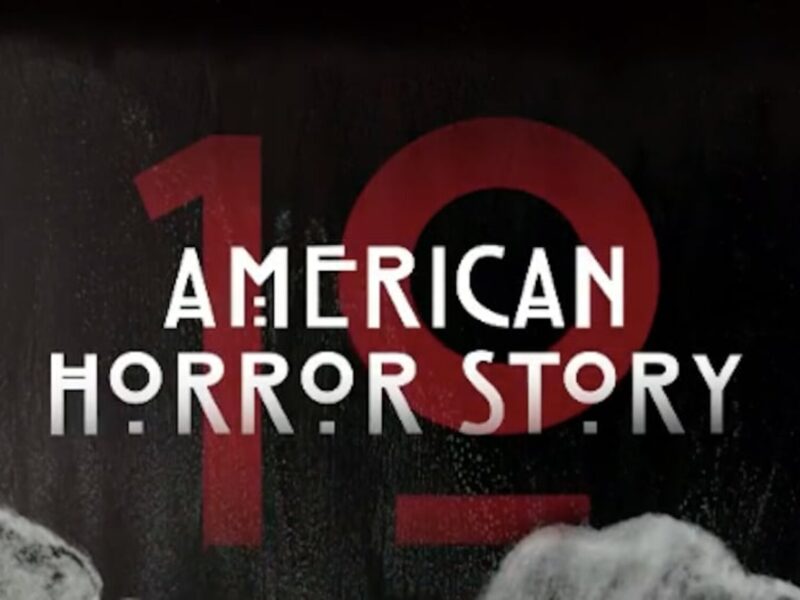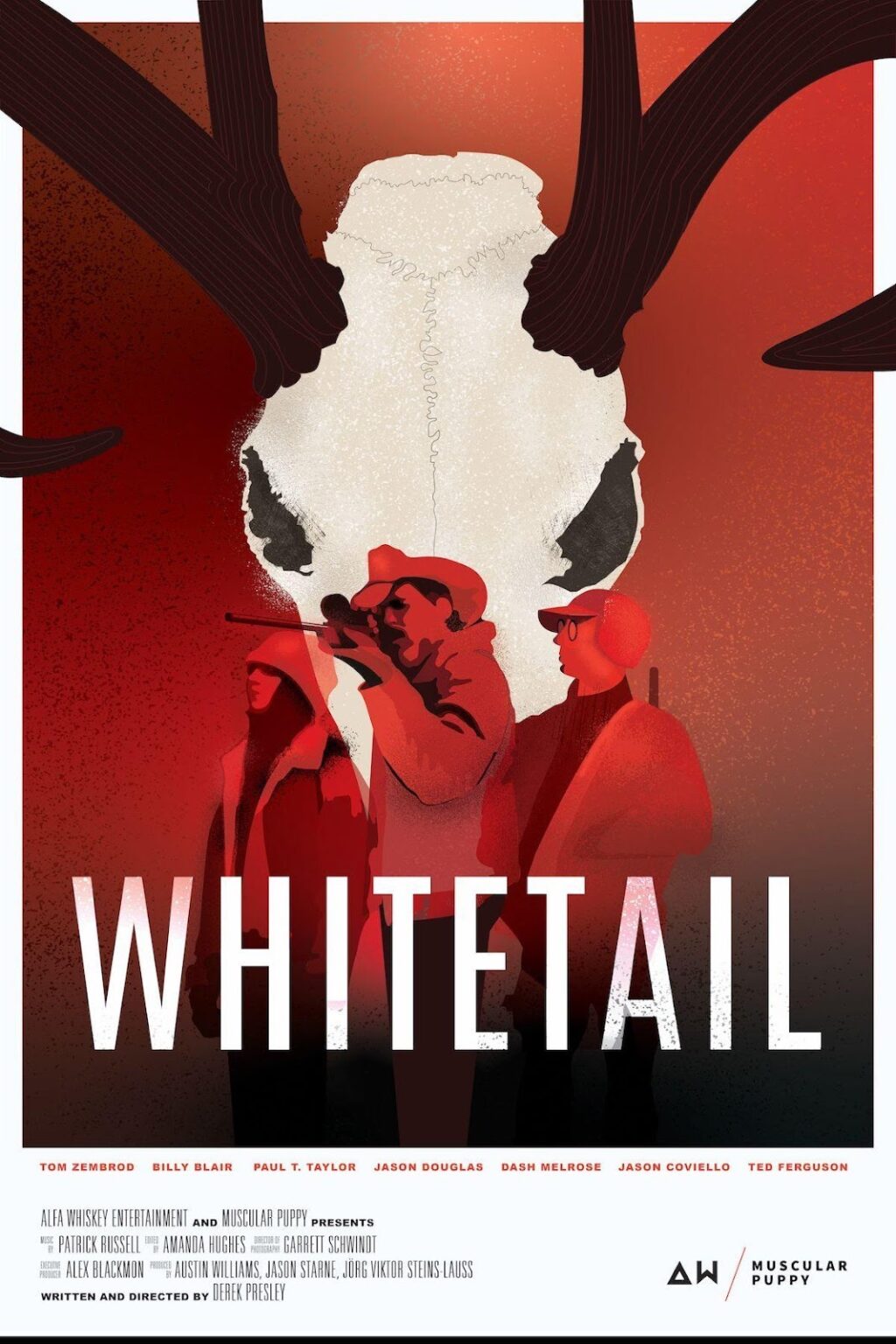
Intriguing stories: Get to know ‘Whitetail’ filmmaker Derek Presley
Indie film fans looking for a thrill should keep their eyes on Whitetail, the newest release from the Texas-based film company Muscular Puppy. Whitetail is a southern gothic horror story about a hunting trip gone wrong. Donnie Mann takes his uncle and father on a weekend trip after the turmoil of his mother’s overdose. When they discover a dead man and a backpack filled with money, everything comes apart.
Whitetail was written & directed by Derek Presley, who cofounded Muscular Puppy with fellow Texas natives Jason Starne, Alex Blackmon, and Garrett Schwindt. The company has previously released Red Stone starring Neal McDonough, as well as the film’s “spiritual sequel” Boon. This year Muscular Puppy will release three feature length films.
Whitetail, which kicks off the Muscular Puppy trifecta, premiered at the Texas Theatre in Dallas on July 2nd. It stars Dash Melrose, Tom Zembrod, Paul T. Taylor, Jason Coviello, Billy Blair, Jason Douglas, and Ted Ferguson. We had a chance to sit down with Derek Presley to ask him about his journey as a filmmaker and his work on Whitetail.
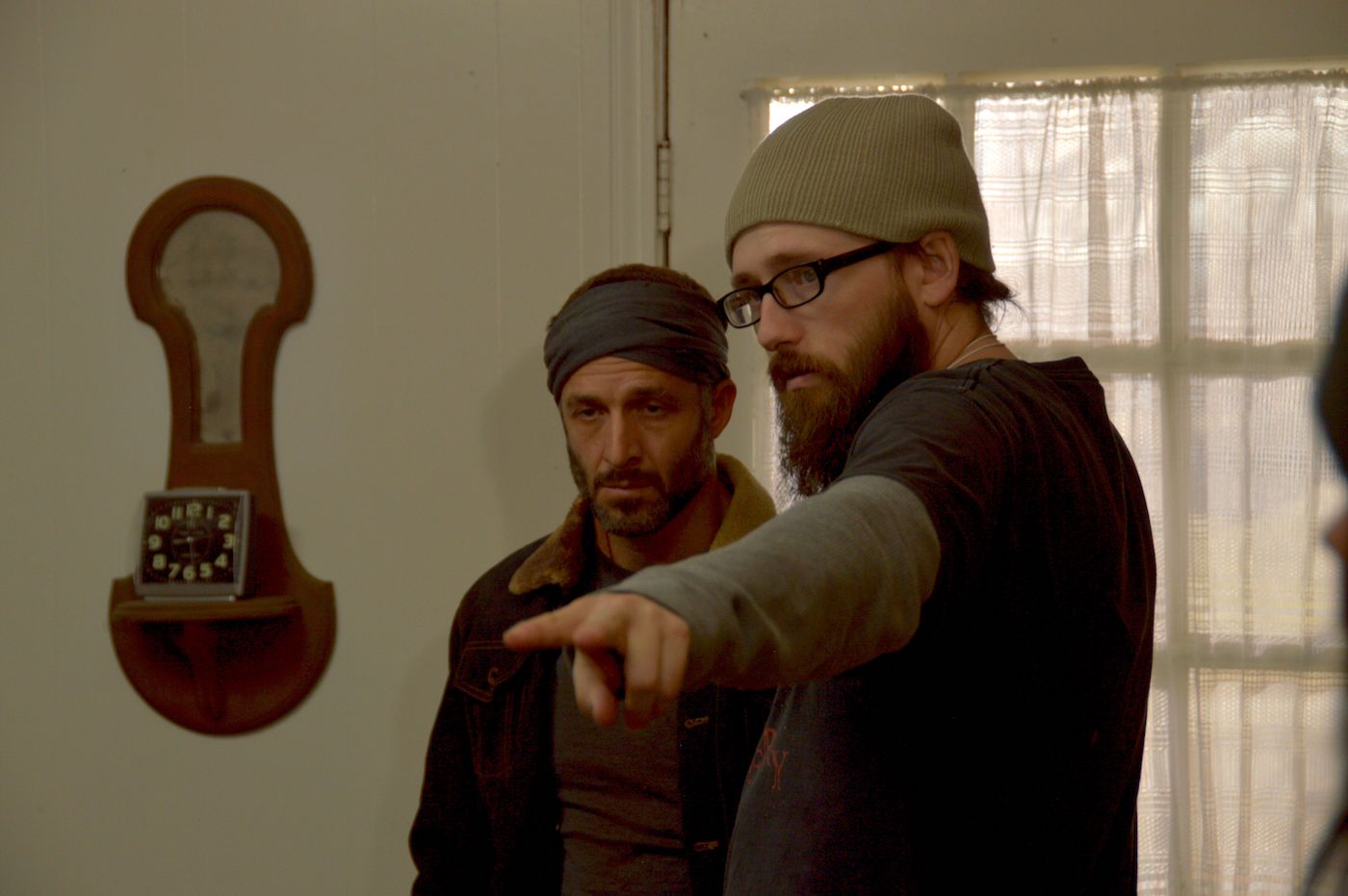
Tell us about your history in writing/directing. How did you start your journey?
My journey really started when I was about 12, I guess. Hard to remember, but I do know it began when I first played with my mom and dad’s video camera. It was a hi-8mm video cassette and I started playing with it pretty much all day, every day and recorded everything. A little bit later, I started actually creating little movies and showing them to family and friends. Over the years I learned more and more and eventually figured out exactly what I wanted to do, which was writing and directing.
Who were your biggest inspirations growing up?
My inspirations are by decades, or I guess by chunks of time in my life. My teenage years were devoted to crime films. I worshipped Scorsese, Tarantino and John Woo. My friends and I would make these really dark little films about hit-men and gangsters and we’d try to do John Woo style action. But around nineteen or so, I found the Coens, Terry Gilliam and Jean Pierre-Jeunet. These guys changed my life entirely. I was obsessed with their work and I studied them intently. So, my twenties I spent trying to emulate them as best I could. My short films and projects were all very much in the style of Terry Gilliam or Jeunet. I used wide, zany lenses and a ton of dutch, off-kilter shots. But in my mid 30s, I started to really enjoy the films that were closer to reality. Eastwood is a big inspiration. I love the Safdie brothers. Cassavettes. And there is an amazing director in Oklahoma named John Swab whose work is just impeccable and really raw. I also have a soft spot for Abel Ferrara’s 90s crime films.
Have you worked with mentors in the past? How would you recommend people go about finding them?
Honestly, I don’t know that I have. My mentors were in books and biographies. DVD commentaries. I think one now would have a pretty easy go at finding someone with email, linkedIN and all the internet and the arms it has. You can reach anyone.
You’ve helmed a number of shorts as well as feature films. What’s the biggest difference between shorts and features in your opinion?
Budget, schedule and pressure to regain the money you spent making it. Short films have virtually no expectations, financially, because there’s no way to profit from them. So you’re either putting your money in it or you’re raising money from people with the understanding that this is not going to make money. The schedule is tighter and you can just shoot your film in a few days (if you’ve done it correctly) and you can go back to your life. When you shoot a feature, you’re using money from people and they expect that money to be returned to them. Your schedule is days and of course in some cases, months of your life. I’ve shot films with budgets ranging from twenty thousand to recently two million dollars. There’s pressure from the get-go to get the film done and in the can and start distributing.
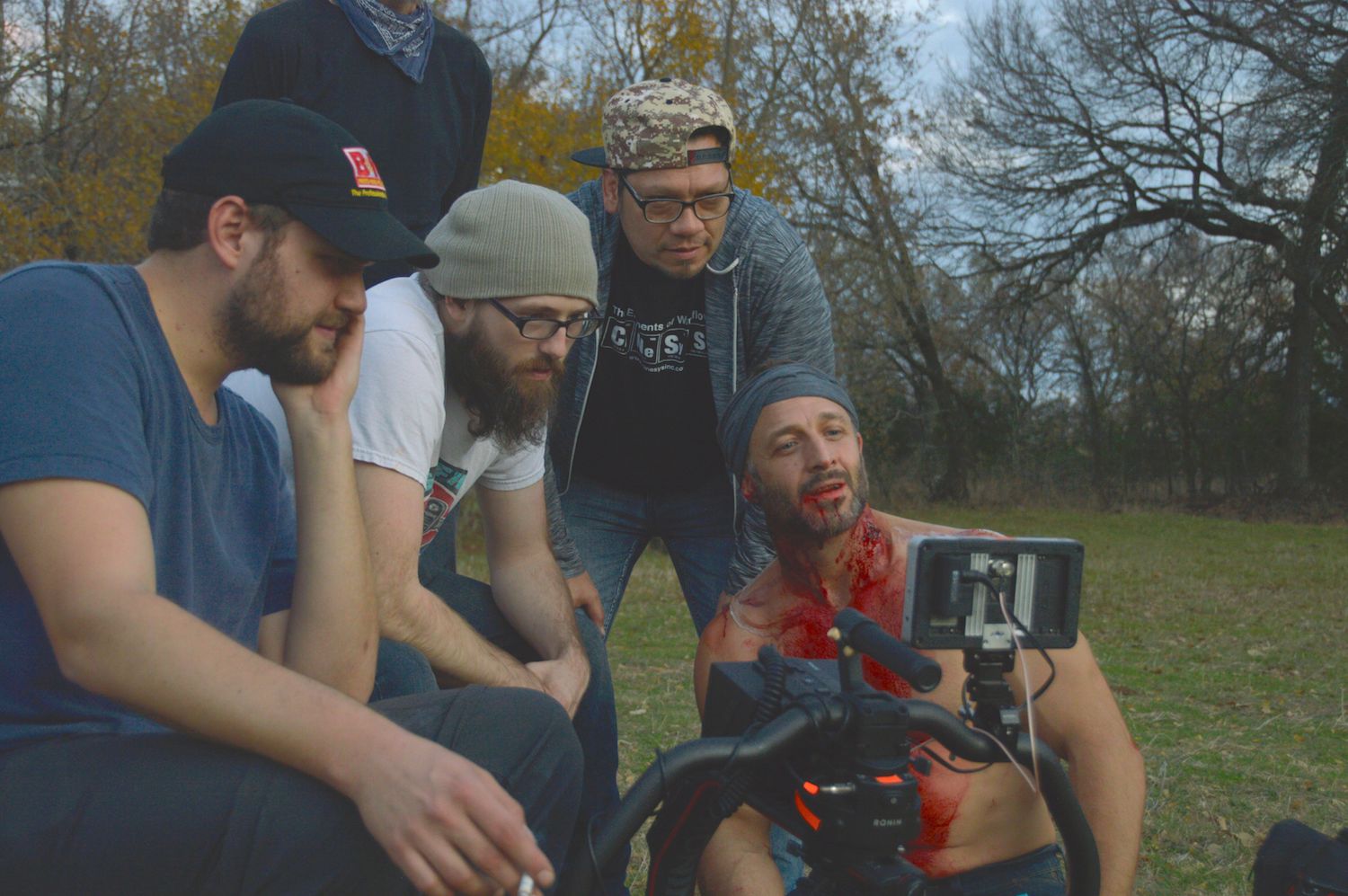
Your latest film is the gothic thriller Whitetail. What was the initial inspiration behind the film?
Just the need to get back to the basics with telling a story. My previous films were very surreal and in the world of sci/fi and horror. For Whitetail, I wanted to utilize some places I had been to as a kid and even used some family members that have passed away as inspiration for the characters. It was contained and it was raw. I was trying to kind of do something different.
As a filmmaker, do you prefer to tell stories that you have a personal connection with?
Now I do. Absolutely. Not every script, but I prefer it when I can, yes. My previous films didn’t have a ton of personal connections and I felt they were a tad shallow. I love them all and every project taught me something, but I feel like the work we’ve been doing recently is more personal and thus, it feels like there’s more at stake.
Were there any films or filmmakers who influenced the style of Whitetail?
Oh absolutely. Sam Peckinpah. Clint Eastwood. Yasujiro Ozu. Jeremy Saulnier. John Boorman. Taylor Sheridan. Lynne Ramsay. Garrett Schwindt, our cinematographer had his inspirations as well, he was also inspired by Ozu.
You wrote the screenplay in addition to directing. Which part of the creative process do you prefer?
Oh, wow. That’s difficult to say. I’d honestly say I would be sad if I had to choose. My thoughts on writing are this: When I’m writing a screenplay, I’m enjoying it and my mind starts wondering about all of the production details, I start to really miss being on set. I want to be in the thick of it. I’m bored from being behind my keyboard and I’m getting antsy to shoot the script. Now, when I’m on a set and I’m shooting and it’s about two weeks in, I have the sudden desire to run back to my office where there’s a good temperature and the work is isolated. I don’t have to compromise. I don’t have to wait forever to light a shot or to cross my fingers that we finish our shots before we wrap. I often think to myself, “Man, writing sure is awesome”. But the truth is, I love both.
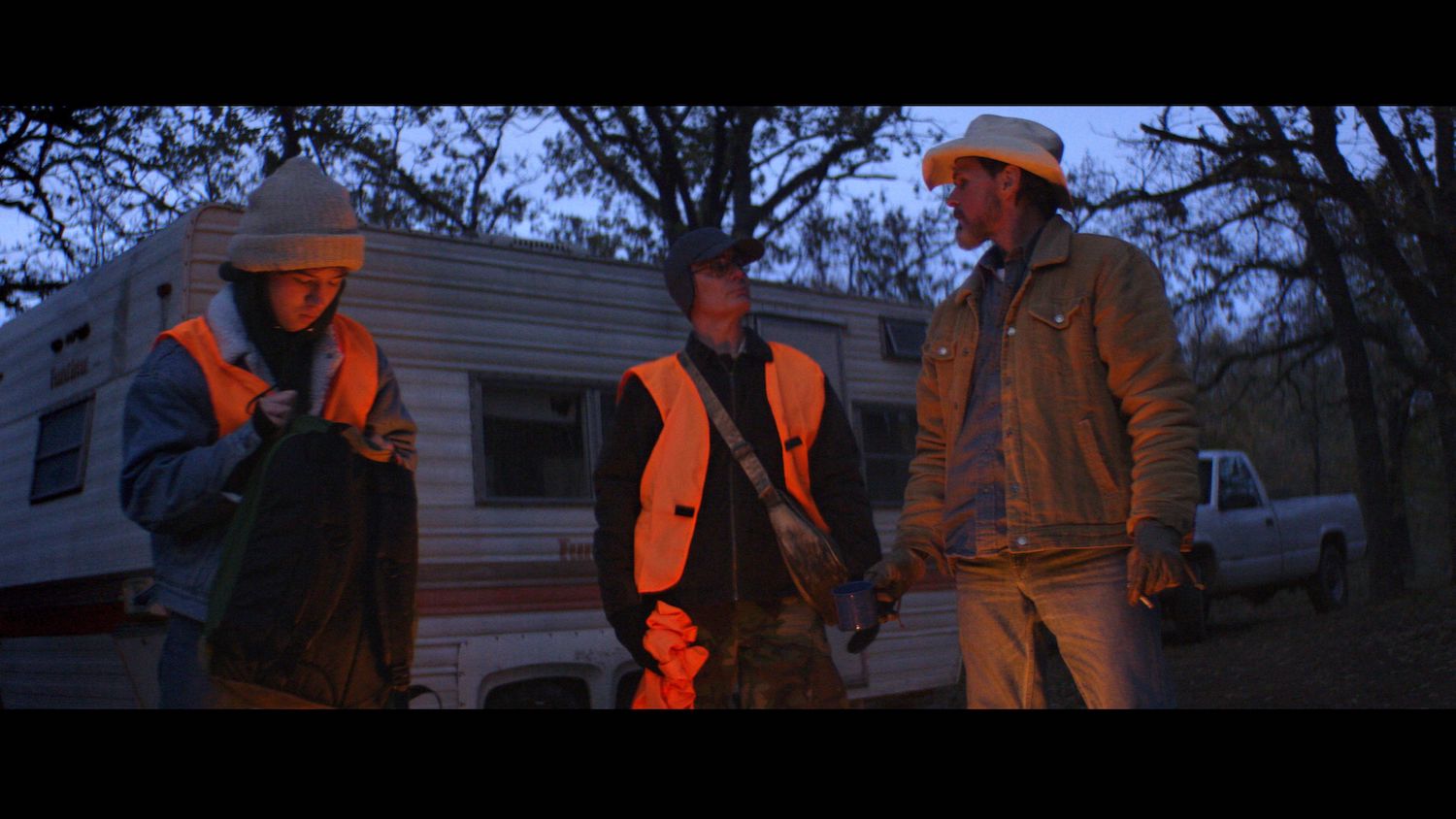
Do you encourage improvisation on the set or do you prefer to stick to the words on the page?
That’s relative to the project. On something like Whitetail, we stuck to the words for the most part. There were a few great improvised lines by the cast that were just awesome. But it really depends on the film. I’ve done both and I can honestly say I prefer to stick to the words but sometimes it just doesn’t call for it.
Whitetail boasts an impressive ensemble cast. Do you have a standard method for working with actors or does it depend on the performer?
Absolutely depends on the performer. I write bios for each character and with Whitetail I had fun doing it, so I’d change up the prose and style for each character. Some I’d do present tense and others I’d do almost obituary style. They loved it and really used the bios to get into character but some don’t want to even read it. They prefer to get there all the way by themselves. And I never force it. It’s just something I do to help me as well so when I’m directing them I don’t forget who they are and their ticks. Jason Douglas in Whitetail was one of the actors who preferred to not read the bio I made for his character, and he was fantastic.
Whitetail tackles some heavy topics over the course of its runtime. What is the main theme you want audiences to take away from the film?
Ah, well, I’d prefer to let the audience make that decision. Let them come away with whatever it is they do. One theme evident is the idea that innocence can prevail. Also that children, even ones like Donnie, can bounce. They are durable and they can surprise you with what they can handle.
Would you ever consider directing a project that you didn’t write?
The short answer is, yes. I’d be extremely nervous and I’d feel a responsibility to the writer to make sure his or her story is told the right way. But yes, I’d absolutely consider it.
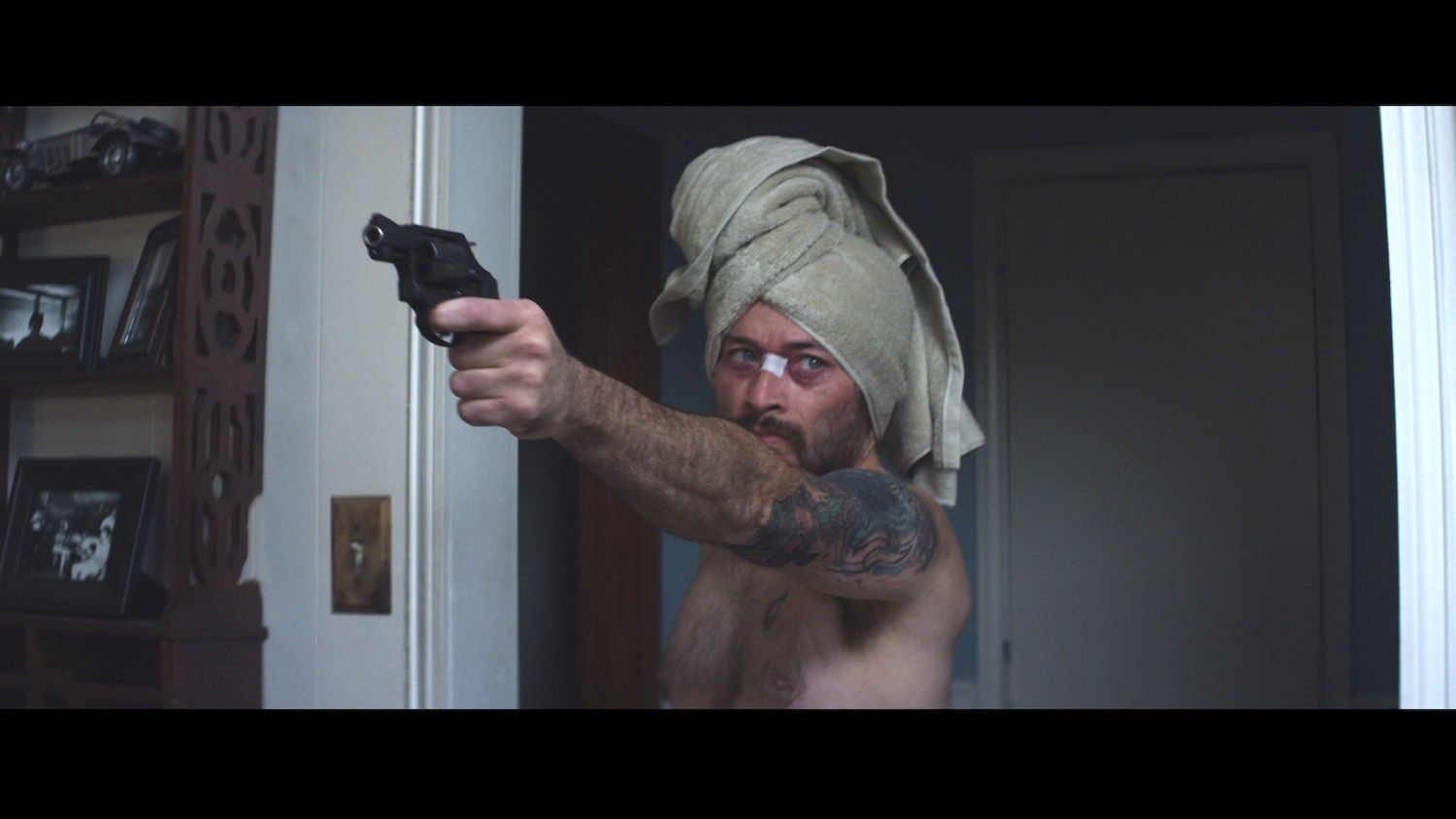
You’re the co-founder of the production company Muscular Puppy. What made you decide to start your own company versus pitching films to a pre-existing one?
Muscular Puppy really happened organically. I pitched Whitetail to Alex Blackmon, the executive producer, and then while working on the film with Garrett Schwindt (cinematographer/producer), Austin Willliams (producer/UPM) and Jason Starne (producer/post supervisor) we all really gelled and felt like we wanted to do this again and again and again. So after we wrapped, we formed the company.
Where did the name “Muscular Puppy” originate?
Alex Blackmon, the Executive Producer, has an awesome little dog named Mr. Miyagi and the dog has muscles. I’m serious. He’s ripped like Stallone in Rambo 3, so Alex came up with Muscular Puppy. We all said, “Hell yes”.
What would you say distinguishes Muscular Puppy from other production companies?
We want to do intriguing stories and stories that don’t necessarily play by the rules. We want to make what WE would want to see on screen.
Can you tell us about any upcoming Muscular Puppy projects?
I can say we have two more features coming out on the heels of WHITETAIL. RED STONE, our second feature, is a southern crime thriller starring Neal McDonough, Michael Cudlitz, Billy Blair and Dash Melrose. We shot it during the pandemic last Summer in a small town in Texas. BOON, our third feature, is a neo-western/action film shot in the Mountains up in Washington state this last January. BOON stars Neal McDonough, Tommy Flanagan, Christiane Seidel, Christina Ochoa and a slew of other awesome actors. Both films are signed to distributors and coming out Fall/Winter of this year.

What has been your greatest professional success?
I’m partial to WHITETAIL because it’s pure. It was unadulterated indie filmmaking with a great team. Garrett Schwindt has often described it as a much less dangerous Herzog film. Just being out in the elements and bleeding for it. Whitetail was also the start to this grand adventure I’ve been on with these wonderfully talented people that I’m also happy to call friends and business partners now.
How about your biggest professional failure? What did you learn?
While I’ll keep out names, I directed a film a number of years back for a small independent film company out of Los Angeles. I was approached by a producer and was told to write a particular script for a particular urban legend going around and to cast it, shoot it and edit it in all of 4 months. I hated every moment of it and I realized I’m only good at this if I truly love what I’m doing. The moment this becomes a monotonous job, is the moment I’ve failed and need to stop. I learned how to deal with a certain type of producer. I learned to trust my gut. I learned to have respect for every single department and element of this artform. But most importantly, I learned that this is all just so ridiculously trivial compared to other things out in the world. So enjoy it. Enjoy creating and be thankful you can do it.
What advice do you have for aspiring filmmakers?
I’m kind of hesitant to give advice, but I guess if I had a gun to my head, I’d say to persevere. Love it. Learn every facet you can and always know filmmaking is RELATIVE. Some people idolize and love Star Wars while others despise it and claim it’s the downfall of the golden age of Hollywood. Some people respect a film like Enter the Void, while others want to gouge their eyes out after watching it and don’t understand it. It’s all relative and not one person on this planet has made a perfect film. At least not in the eyes of every single human being that’s seen the film.
Lastly, what is your favorite film of all time?
If it’s a Monday through Saturday, it’s Terry Gilliam’s BRAZIL. But if it’s a Sunday afternoon, I have to say Eastwood’s Outlaw Josey Whales.






